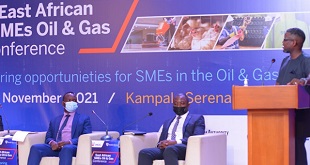COMMENT: By Joseph Bossa
Acquiring land and paying compensation later can be justified in some cases but government faces a trust deficit
Land, buildings, and cattle are the forms of wealth most Ugandans are aware of and aspire to acquire and retain. But of them, land is the greater because even cattle have to be grazed on land. Therefore, any policy proposal from government touching on how land may be acquired, retained, surrendered, alienated, or used is bound to arouse great excitement and apprehension among Ugandans. The mooted proposal by government that it may, contrary to the provisions of the national Constitution, acquire privately owned land without prior compensation to the owner, is such policy as will raise the red flag in the population. Consequently, it will be examined minutely and debated relentlessly.
There is not even a single square inch of land in Uganda that is without an owner. Some land belongs to individuals or institutions in perpetuity as mailo or freehold; some belongs to those who have leased it from government; some is communal land, and the rest belongs to government or its agencies such as the Wild Life Authority, Uganda Broadcasting Corporation, etc.
The government should have the responsibility and the capacity to provide social services to its citizens like schools, hospitals, roads and rail lines, recreation grounds and carrying out comprehensive urban planning. Those structures cannot be constructed entirely over government owned land. Some private land has inevitably got to be appropriated. The present law says that before it is appropriated, the owner of the land must be compensated. That is where the problem starts: the question of ownership.
I will take as an example, land ownership in Buganda. In Buganda, probably more than anywhere else in Uganda, the problem of multiple ownership over a single piece of land is rampant. There may be, first, the mailo owner who holds a land certificate of title evidencing his ownership. But on that same piece of land there may be several bibanja owners. It could get worse. The mailo owner may have subdivided that land and sold the various pieces to different individuals who have not been issued with certificates of title. But everybody knows where his piece passes. All these people have ownership over this piece of land.
In another scenario, a man may be holding a certificate of title which is still in the names of his grandfather who died, say, 60 years ago without making a will. This man claims to be the heir of his father who was the heir of his (the man’s) grandfather in whose name the title still is. This man genuinely believes that because the land title is in his possession and he is the heir to his father who was the heir to the grandfather in whose name the title is, he is the owner of the land the title represents. He regards the certificate of title like cash money—whoever has possession of is assumed to be the owner. But he is mistaken for the legal process of changing ownership from his grandfather to himself has never been gone through and, therefore, legally the grandfather who has been dead those many years is still the owner of the land in question.
It can get even more complicated. At the time of the death of the grandfather, according to Kiganda customary law, the heir of the dead person took ownership of all that person’s possessions unless the deceased had made a will in which the distribution of the property was provided for. Then, the man’s father may have taken over the entire estate of the grandfather. Not anymore. Today the law provides a formula for the distribution of the deceased’s estate where there is no will. Consequently, even though this man holds the certificate of title, there may be brothers and sisters or their off-spring in the woods who can lay claim, strong or weak, as beneficiaries to a share of the land. Is this fantasy? No. I have met these situations in my practice. If you find this mind-boggling, pity the government official holding the money bag ready to pay the owner and get on with the project.
Suppose that is the type of land on which the government project is going to be sited or over which it is to run. Who owns this land and is entitled to compensation? Should the project stall until the true owner(s) is legally identified and paid off before it starts? Who should drive the process of identifying the owner and at whose cost? If all that must be cleared before the project starts or continues, how does it affect the gestation period of the project– that is the period between conceiving the project and its realization– and its cost? And if you are a politician who promised a hospital to the voters, the election cycle may run out even before the foundation stone has been laid. The delay to the project due to uncertain ownership of land is one situation which, in my view, would justify government taking over land and paying compensation afterwards. But there may be others.
So, if acquiring land and paying compensation later can be justified in some cases, where does the problem lie? First, the government has not even attempted to explain to the people why it is proposing this departure from the existing law. But by far the biggest problem is that the leaders of this government are running a huge trust deficit.
The people will not believe that the proposal is meant to serve their common good. And who can blame them? They have seen enough to justify withholding their trust.
****
Joseph Bossa is the president of the Uganda Peoples Congress
****
editor@independent.co.ug
 The Independent Uganda: You get the Truth we Pay the Price
The Independent Uganda: You get the Truth we Pay the Price


